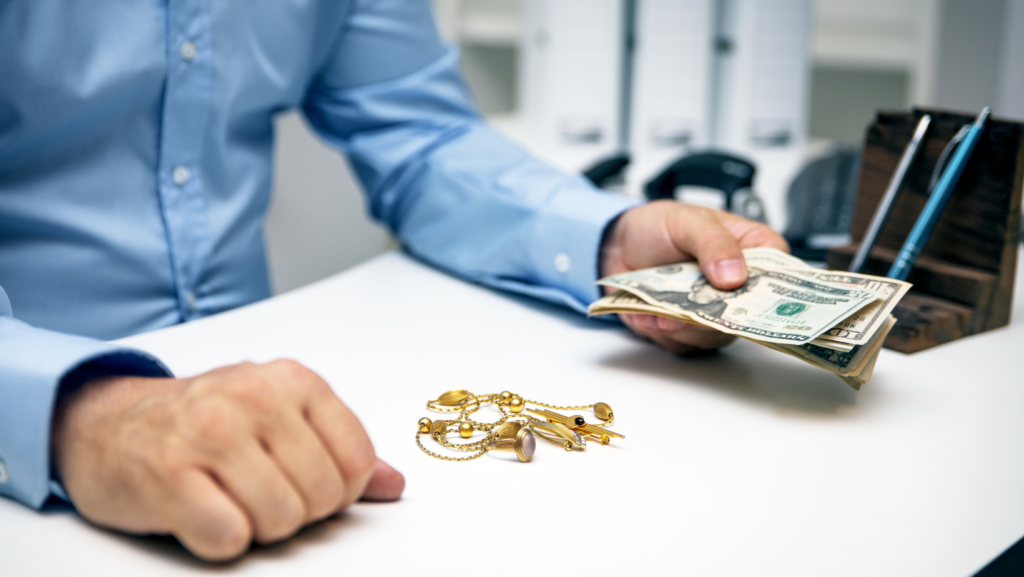When you need cash urgently, pawning items for a quick cash loan can be a tempting option. Among the various items that people choose to pawn, laptops are becoming increasingly popular due to their high value and portability.
However, before pawning your laptop, it is important to understand how the process works and how much you can expect to receive for it.
In this article, we will explore the factors that determine the value of a laptop at a pawnshop, the average amount that you can expect to receive, and some tips on how to get the best deal possible.
How Much Is My Laptop Worth at a Pawn Shop?
The amount of money you can receive when you pawn your laptop varies depending on several factors, including the brand, age, condition, and specifications of your device, demand for laptops in the market, as well as the pawnshop’s policies. In general, you can expect to receive anywhere from 25% to 60% of the laptop’s current market value as a pawn loan.
For example, if your laptop has a current market value of $1,000, you could receive a pawn loan of anywhere from $250 to $600. This amount represents the loan value, not the amount you’ll receive outright. You’ll need to pay back the loan, plus any applicable fees and interest, to reclaim your laptop.
It’s also worth noting that some pawnshops may offer higher or lower loan amounts than this range, depending on the specific circumstances. To get the best possible deal, you should shop around at several pawnshops, compare offers, and negotiate when possible.
Additionally, you should carefully read and understand the terms of the loan agreement before agreeing to pawn your laptop to ensure you’re comfortable with the loan requirements and any potential consequences of defaulting on the loan.
What is Needed to Pawn a Laptop?
To pawn a laptop, you will need to provide the following items and information to the pawnshop:
Laptop
The pawnshop will need to inspect the laptop to assess its value and condition, so you’ll need to bring it with you. Ensure it is in good working condition for it to be accepted.
Valid identification
Most pawnshops require a government-issued ID, such as a driver’s license, passport, or state ID card, to verify your identity and age.
Proof of ownership
You’ll need to provide documentation that shows you own the laptop, such as a receipt or original packaging. If you don’t have this, the pawnshop may be able to check the serial number to verify ownership.
Laptop accessories
Including the power cord and any additional accessories that came with the laptop, such as a carrying case or external mouse, can increase the value of your pawn loan.
Any relevant passwords
If your laptop is password-protected, you’ll need to provide the pawnshop with the necessary information to access it.
***
Once you’ve provided all the necessary items and information, the pawnshop will assess the value of your laptop and make you an offer for a pawn loan. If you agree to the terms, you’ll receive the loan amount in cash or a check, and the pawnshop will hold onto your laptop until you repay the loan plus any fees and interest.
If you’re unable to repay the loan, the pawnshop may sell the laptop to recoup their losses.

Will a Pawn Shop Buy a Broken Laptop?
It depends on the pawnshop’s policies and the extent of the laptop’s damage. Some pawnshops may not accept broken laptops at all, while others may be willing to buy them for a reduced price.
If your laptop is broken but still has some value, the pawnshop may offer you a lower pawn loan amount based on its current market value. For example, if the laptop’s screen is cracked but the internal components are still functional, the pawnshop may offer you a lower loan amount to account for the cost of repairing the screen.
On the other hand, if the laptop is severely damaged or not functional at all, the pawnshop may not be interested in buying it. In these cases, you may be better off trying to sell the laptop for parts or as-is on an online marketplace or to a computer repair shop that specializes in refurbishing electronics.
You may also want to get an estimate for repairs or the current market value of the laptop before deciding whether to pawn or sell it.
Do I have to clear my laptop to pawn it?
If you want to pawn your laptop, you should clear any personal data such as personal documents, pictures, videos, login credentials, and other data to protect your personal information.
You should back up any important files or documents to an external hard drive or a cloud-based storage service. Once you’ve backed up your data, you can erase the data from your laptop by performing a factory reset or using a data wiping tool to ensure that all personal data are permanently erased.
By clearing your laptop, you also remove any personal information that could be used to compromise your privacy or security. Therefore, it’s important to take the necessary steps to safeguard your personal data before you pawn your laptop.
Can You Pawn a Laptop With a Password?
You can pawn a laptop with a password, but it’s generally recommended to remove the password before you pawn it. This is because the pawnshop may need to test the laptop to ensure that it’s in good working condition, and a password can prevent them from doing so.
If you do decide to pawn a laptop with a password, you should provide the pawnshop with the password so that they can access the laptop if necessary. However, keep in mind that providing the password to someone else means that they will have access to any personal information stored on the laptop.
To avoid any potential issues, it’s a good idea to remove the password before pawning the laptop. This ensures that the pawnshop can test the laptop and that your personal information is protected. Before removing the password, remember to back up any important files or documents to an external hard drive or a cloud-based storage service.
What Happens if You Pawn a Laptop and Don’t Pay?
If you pawn a laptop and don’t repay the loan by the due date, the pawnshop may sell the laptop to recoup its losses. The specific rules and procedures can vary depending on the terms of the pawn agreement.
Typically, if you don’t pay back the loan or the interest, the pawnshop will send you a notice reminding you of the outstanding debt and the due date. If you still don’t pay the debt or respond to the notice, the pawnshop may begin the process of selling the laptop to recover its losses.
The pawnshop must follow certain legal requirements and procedures when selling the laptop. In most cases, they must notify you of the sale and give you the opportunity to pay off the debt or redeem the laptop before the sale occurs.
If the sale price is higher than the amount owed, the pawnshop may return the excess funds to you. If the sale price is lower than the amount owed, you may be responsible for paying the remaining balance.

Is It Better to Pawn or Sell My Laptop?
When deciding whether to pawn or sell your laptop, you should consider the following factors:
Need for cash
If you need cash quickly, pawning your laptop may be a better option. You can get a loan based on the value of the laptop, and you have the option to repay the loan and get your laptop back.
Value of the laptop
If your laptop is in good condition and has a high resale value, selling it may be a better option as you can often get more money selling it than pawning it.
Timeframe
If you don’t need cash immediately and have time to wait for the right buyer, selling your laptop may be a better option as it may take longer to find a buyer willing to pay your asking price.
Ease of transaction
Pawning your laptop is a relatively easy transaction, and you can get cash on the spot. Selling your laptop requires more effort, including finding a buyer, negotiating a price, and arranging for payment and shipping.
Desire to keep the laptop
If you want to keep your laptop and have the option to get it back, pawning it may be a better option as you can repay the loan and reclaim your laptop. If you don’t want to keep the laptop, selling it may be a better option.
Final words
When pawning your laptop, you should read and understand the pawn agreement to know the terms of the loan and any associated fees. Usually, if you are unable to pay the loan, you could lose your laptop or even pay additional fees. You should also remember to clear any personal data from your laptop to avoid losing your personal information to unauthorized users.

